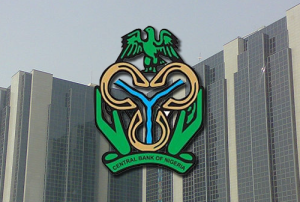 Inflation rate climbed to the highest in more than two years last month as food prices surged, exceeding the Central Bank of Nigeria’s (CBN’s) target for a fourth month.
Inflation rate climbed to the highest in more than two years last month as food prices surged, exceeding the Central Bank of Nigeria’s (CBN’s) target for a fourth month.
Inflation accelerated to 9.4 per cent from 9.3 per cent in August, the National Bureau of Statistics (NBS) said yesterday. The median estimate of 17 economists surveyed by Bloomberg was 9.5 per cent. Prices rose by 0.6 percent in the month.
A slump in crude prices by more than 40 per cent in the past year has put pressure on the naira, pushing up consumer prices, and cutting government revenue. CBN Governor Godwin Emefiele imposed foreign currency controls this year to stabilise the naira, restricting imports and adding to price pressures.
The CBN has kept its policy rate unchanged at 13 percent for five consecutive meetings even as inflation exceeded the bank’s six per cent to nine per cent target.
Emefiele has so far resisted calls to ease the foreign exchange controls and devalue the naira despite criticism by investors, businesses and fellow members of the Monetary Policy Committee. The naira has averaged 198.99 per dollar since the restrictions were imposed in February.
The core inflation rate, which excludes agricultural products, fell to 8.9 per cent last month from 9 per cent in August, the statistics office said. Food inflation accelerated to 10.2 per cent from 10.1 per cent.
The inflation figure released by the NBS followed an earlier survey by The Nation. Most analysts said they expected inflation rate to increase successively over a two-month period, a trend that could worsen the negative returns on Nigerian equities.
With basic equities’ return in negative, inflation-adjustment would almost double investors’ losses, a trend that could further dampen investors’ appetite and orchestrate flow of funds to inflation-hedged instruments and other negative but less volatile securities.
Nigerian equities declined by 1.30 per cent yesterday, pushing the average-year-to-date return to -14.40 per cent. With current inflation rate of 9.4 per cent, inflation-adjusted average return at the stock market opens today at -23.8 per cent. Prediction of further rise in inflation by most pundits implied that the negative equities’ return may worsen. Nigerian equities’ average return is measured by the All Share Index (ASI) of the Nigerian Stock Exchange (NSE).
Financial Derivatives Company (FDC) noted that with the rise in inflation rate to 9.4 per cent last month, inflation has increased in eight out of the nine months so far in 2015, adding that the current inflationary trends seem to be more structural despite the CBN’s statement in its July communiqué that the inflationary pressures were transient.
FSDH Merchant Bank said it expected the October 2015 inflation rate to increase further.
“Looking ahead, the inflation rate for the month of October 2015 is expected to be higher than the September 2015 figure,” FSDH Merchant Bank stated.
Analysts at FDC said the primary catalysts of price inflation in Nigeria are cost-push factors, which are being intensified by the restriction of dollars for some critical inputs.
END

Be the first to comment